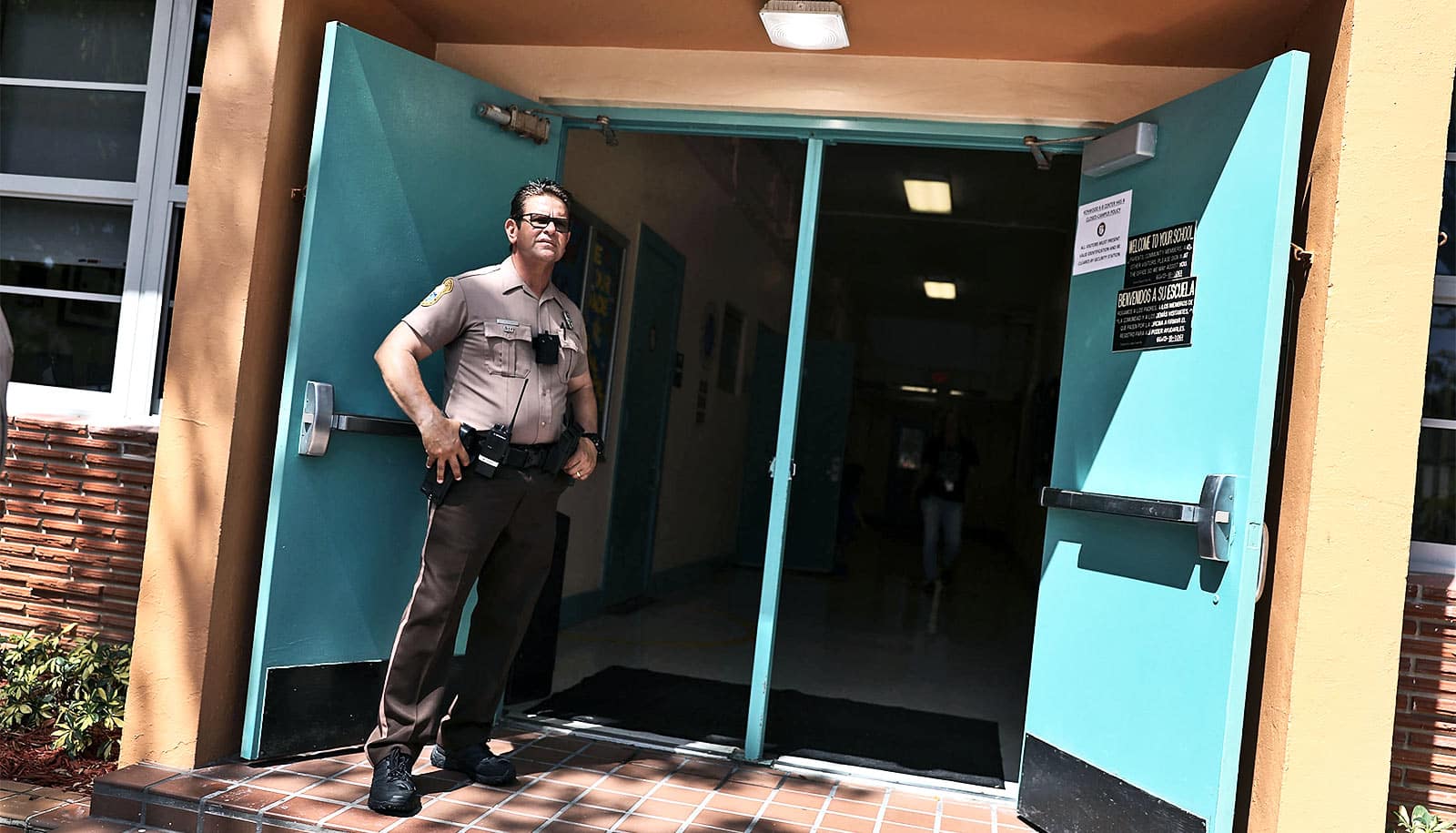Despite widespread criticism from education authorities, nearly three-fourths of surveyed teachers support the use of “zero tolerance” as an effective discipline practice, according to a new study.
Contrary to the goals of zero tolerance policies, teacher support was linked to higher rates of out-of-school suspensions as well as lower feelings of safety at school among both students and teachers, the research finds.
When a Maryland elementary school suspended a 7-year-old student for biting a breakfast pastry into the shape of a gun in 2013, the punishment received national media attention and sparked concern about the potential for zero tolerance policies to be excessively harsh as a discipline approach.
Seeking to better understand the level of support among teachers for zero tolerance policies in schools, researchers analyzed data from a school climate survey with responses from more than 10,000 teachers and 100,000 students from nearly every middle school in Virginia.
Although zero tolerance policies in schools have been around since the 1990s, few studies have investigated the relationship of zero tolerance policies, school disciplinary practices, and school safety.
Since “zero tolerance” is a discipline philosophy that may not always be specifically spelled out in official writing, it can be difficult to study its effectiveness, so researchers sought to learn how much teacher support there is for the philosophy.
The original idea behind implementing zero tolerance policies was to deter student misbehavior by making it clear that certain actions would automatically be met with swift and severe punishment, says Francis Huang, an associate professor in the University of Missouri College of Education and Human Development.
“Zero tolerance policies were originally meant for gun and illegal drug-related infractions that were intended to make schools safer,” Huang says. “However, there has been very little research on whether these policies have actually worked, namely improving student discipline and increasing feelings of safety while at school.”
The findings are important as more schools consider alternative disciplinary practices, such as using “threat assessments” and restorative practice, Huang says. Support for “zero tolerance” may undermine the acceptance and adoption of disciplinary reforms.
“Threat assessment is a process designed to help prevent violence with an emphasis on addressing issues that lead to threatening behavior,” Huang says.
“Restorative practices involve strengthening relationships, resolving conflicts in a constructive manner, and holding individuals accountable for their actions. These alternative approaches may be more effective at promoting a safe and positive school climate.”
Dewey Cornell, professor at the University of Virginia, is a coauthor of the paper, which appears in the journal School Psychology Review. The US Department of Justice funded the work.
Source: University of Missouri



